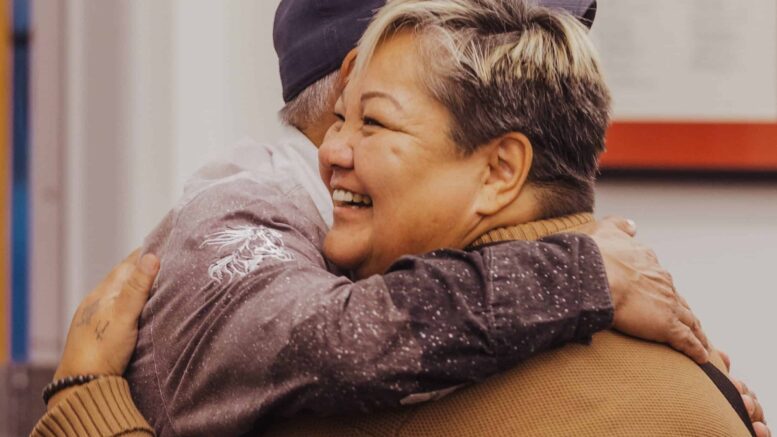by John Wirth
(ANNews) – Williams Lake, British Columbia – The Tŝilhqot’in Nation has secured a historic, fully funded agreement to reclaim jurisdiction over child and family services, grounded in its own laws, culture, and traditions to keep children connected to family and community. This marks a tangible step forward in reconciliation.
The Nation has extended and formalized its coordination agreement with the federal and provincial governments, transitioning from a pilot phase to a five-year plan that exercises full control over its child and family services. In doing so, the Tŝilhqot’in Nation asserts its inherent jurisdiction to deliver child and family services within its territory, a national government that represents six member communities.
“The child welfare system has never worked for our people. We know how to care for our families and our children,” explained Nits’ilʔin Otis Guichon, Tribal Chief of the Tŝilhqot’in National Government. ”It is deep in our teachings and identity as Tŝilhqot’in people. Today we come together as partners, unified and surrounded by the joy and laughter of our families, to honour our Tŝilhqot’in children, laws, and teachings. We commend our federal and provincial partners for recognizing our inherent jurisdiction as Tŝilhqot’in people to care for our families and our children. Today we show the world together that a better future is possible for these children and the generations to come.”
For decades, provincial child “welfare” systems have legally abducted Indigenous children out of their communities. This shift marks a loosening of external control so that indigenous self-determination may take its place.
“This is a new era and a historic day for our Nation,” reflected Nits’ilʔin Francis Laceese, Tribal Vice-Chief. ”We are living our traditional teachings and our human rights under the United Nations Declaration on the Rights of Indigenous Peoples and the Convention on the Rights of the Child. We are a healing Nation and today we are proud to stand with our partners celebrating this tripartite agreement – this is healing for our people, and most importantly our children and future generations.”
The Tŝilhqot’in Nation’s leadership demonstrates how recent legal and policy shifts can empower other First Nations, Inuit, and Métis governments to reclaim similar authority. The groundwork was laid by An Act respecting First Nations, Inuit and Métis children, youth and families (2020), with British Columbia as the first province to explicitly recognize Indigenous jurisdiction in child welfare through amendments in 2022.
The Nation’s law, Tŝilhqot’in ʔEsqax Sutsel Jeniyax (“Tŝilhqot’in children growing up in a good way”), departs from provincial models by centering cultural continuity through Indigenous-led care. It emphasizes that children need to be connected with not just their family, but also their community and their larger cultural healing practices.
“This coordination agreement reaffirms that First Nations have always held the inherent right to care for their children.” noted Mandy Gull-Masty, the current Minister of Indigenous Services. “What is evolving is the recognition, the resources, and the partnerships to uphold that right.”
While federal language frames the agreement as part of an “evolving recognition” of Indigenous Rights, the Tŝilhqot’in Chiefs emphasized that is not new authority but the reclamation of responsibilities that were disrupted through generations of colonial child apprehension.
Self-governance requires resources and this ongoing partnership between nations includes significant financial commitments: $18.8 million per year, $132M for infrastructure, and an additional $766,000 annually from the province of British Columbia.
“By grounding child and family services in Tŝilhqot’in teachings, traditions and values, this agreement supports the Nation’s children and youth to thrive in their communities,“ affirmed B.C. Minister of Children and Family Development, Jodie Wickens. ”It is a powerful example of what we can achieve together and an important step forward on our joint path to reconciliation.”
For the Tŝilhqot’in Nation, this agreement is not a beginning but a return and a reaffirmation that the care for children has and will always be a sovereign responsibility that is rooted in language, kinship and the land their ancestors stood on. As other Nations move toward their own paths of self-governance, the Tŝilhqot’in Nation exemplifies that reconciliation is not symbolic, but lived through the strength of families and the laws that sustain them.
John Wirth is a Local Journalism Initiative Reporter



Be the first to comment on "Tŝilhqot’in Nation secures agreement to reclaim jurisdiction over child and family services"